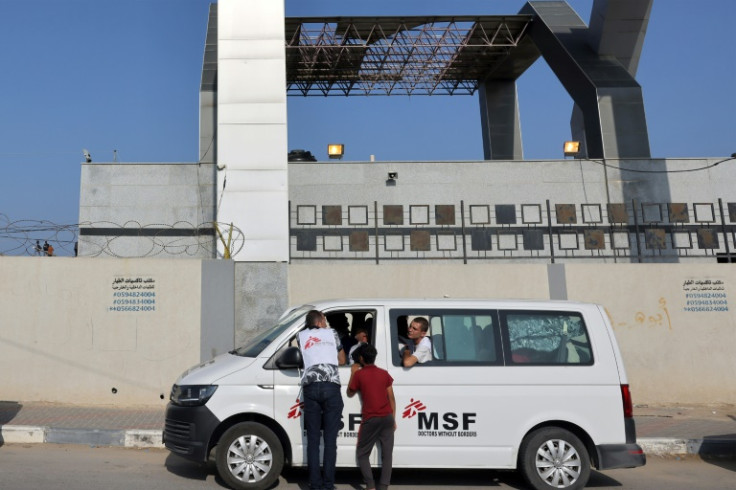Facing A 'Massacre' In Gaza, MSF Laments Limited Ability To Help

Just arrived back from war-torn Gaza, the head of Doctors Without Borders (MSF) for the Palestinian territories told AFP of the dire situation, labelling it a "massacre" and lamenting the charity's limited ability to help.
Leo Cans, who returned from Gaza last week, said that since the start of the war between Israel and Hamas on October 7, hospitals and ambulances have been targeted by the Israeli army, which claims that Hamas fighters are using these facilities as shields.
Three MSF employees were killed in the Gaza Strip by air strikes, as well as the daughter of an employee after an NGO building was hit by a shell. The international organisation has around 300 employees in the Gaza Strip.
QUESTION: What did you see on your last visit to Gaza?
ANSWER: I saw a majority of women and children among the hospital patients. It's the first time we've seen this, even though we've worked with my colleagues in other war situations, in Afghanistan, Syria, South Sudan.
For us, it's clear proof that the bombings are indiscriminate. There's a lot of pain in hospitals, people are screaming, they're saying they're in pain, and there's very little way of dealing with it.
Q: What are your demands?
A: The first demand is for an immediate ceasefire, because right now it's a massacre. There are around 150 women and children being killed every day, according to a conservative estimate. This is a figure that should horrify and alarm the entire international community. Many of the dead are "invisible" because they are not necessarily counted in the bombardments, but they die because they lack essential care.
Then there are the enormous difficulties linked to security. Today, we can't evacuate patients from one hospital to another because of the security situation.
There is also a problem of access, with the Israeli army almost systematically blocking the deployment of humanitarian aid to the north of the Gaza Strip.
I'd say that today we're doing maybe one percent of what we could be doing if we didn't have these limitations in terms of security, access and supplies.
Q: The United Nations has reported that Gaza's health system has collapsed. What does this look like on the ground?
A: Since the start of the war, there have been systematic attacks on health facilities, which is unprecedented for MSF. In war, these places are always sensitive areas and there are always incidents, but this is systematic.
Health facilities now only deal with life-threatening emergencies, and sometimes even fail to respond to them.
Five days ago, we saw an injured patient at Nasser Hospital (in southern Gaza's main city of Khan Yunis) who arrived for orthopaedic surgery, and as there was no surgeon present, he died.
There is no longer any treatment for cancer patients in Gaza, so these people are dying at an accelerated rate.
© Copyright AFP {{Year}}. All rights reserved.





















